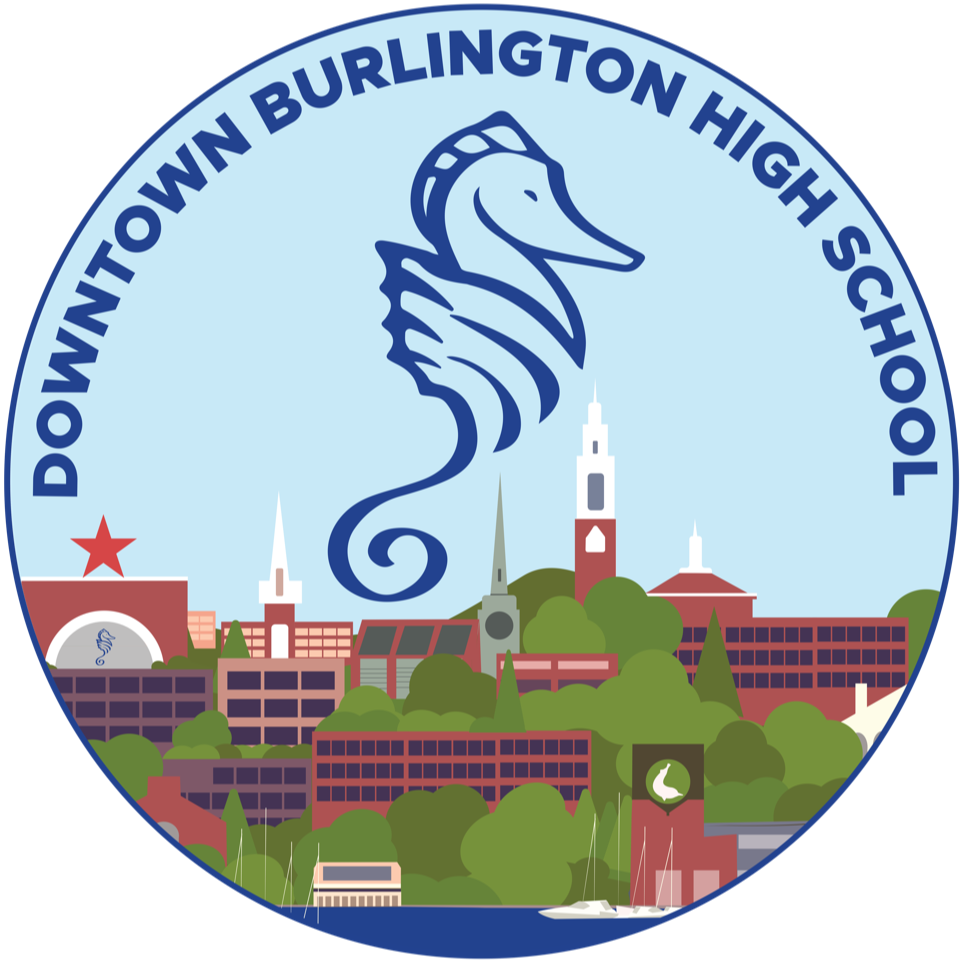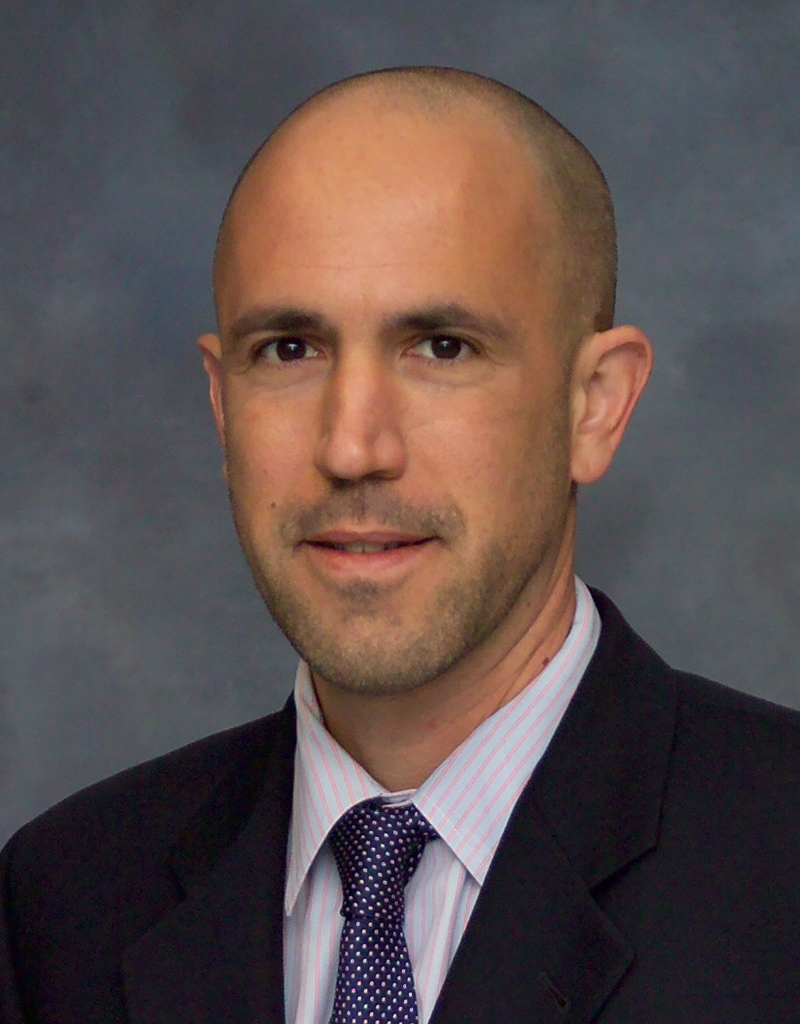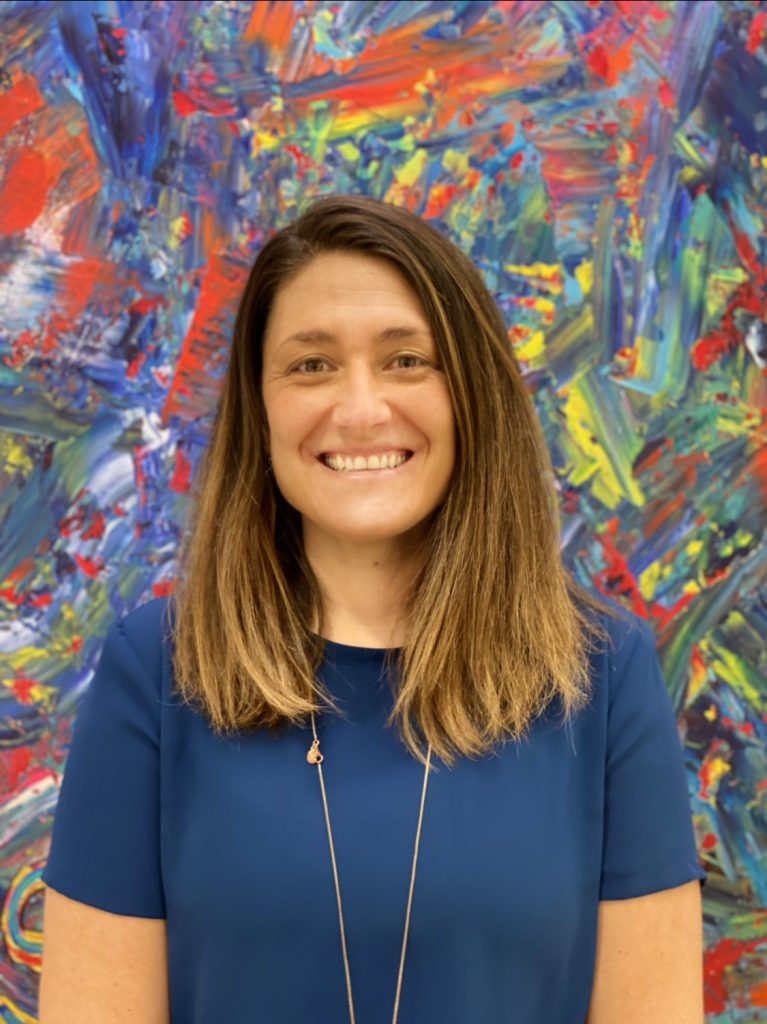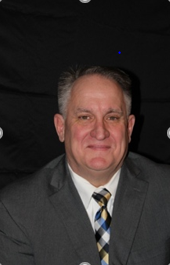
The Burlington High School Principal Hiring Committee has announced three finalists for the BHS principalship. The candidates are Steven Berbeco, who most recently served as Deputy Commissioner for the Child Development Division of Vermont’s Department for Children and Families; Gregory Kirkland, an assistant principal at Clayton County Public Schools; and Lauren McBride, the current interim principal at Burlington High School.
All candidates will participate in a virtual Community and Staff Forum on April 15, from 6 to 7:30 PM. Stakeholders will have the chance to hear candidates answer questions about their qualifications and their hopes for the future of education and BHS. The forum will be live via Zoom: https://zoom.us/j/94271708131 and will also be streamed to the District’s YouTube channel.
Meet the Candidates

Steven Berbeco is an experienced leader in education, successful in innovating systems-level change for diverse, multicultural populations at the district, state, tribal, federal, and international levels. Most recently, as Deputy Commissioner for the Child Development Division of Vermont’s Department for Children and Families, Steven achieved significant stability in the child care market by developing nationally-recognized child care grant programs, and promoted equity access to education by collaborating with and providing technical assistance to superintendents on supporting children during schools’ remote learning days.
As superintendent for a geographically isolated junior high/high school on a Native American reservation, located on an 880-acre campus, Steven increased the graduation rate, improved students’ college and career readiness, and reduced instances of youth self-harm and pregnancy. He amplified students’ voices by establishing a student representative to the school board, meeting with student government monthly, and initiating culturally-based talking circle restorative practices that resulted in a reduction of out-of-school disciplinary consequences. His community engagement strategy generated meaningful input on racial equity, which resulted in the placement of linguistically and culturally appropriate art and supportive posters throughout the schools. Steven supported student learning outcomes by adopting a research-based literacy program, expanding a college-credit distance learning program, and working with nutritional services to provide after-school snacks for students in the tutoring program.
Steven has taught high school history, A.P. Art History, A.P. Government, and Arabic, and directed programs including the Arabic Summer Academy for high school students in Boston and a program at Harvard University for aspiring Arabic teachers. He authored and published Marhaba!, a widely-used curriculum for high school Arabic. Steven has held several federal education positions, including Department Chair, Curriculum Specialist, and Senior Advisor on Language Teaching for the U.S. Department of State, and Dean for the U.S. Department of Defense’s language teaching institute. He has also worked closely with teachers as a Director of Program Evaluation for the Global Language Network, Instructional Coach for the American Councils for International Education, and as a mentor teacher. Steven established a virtual service-learning exchange between Native American students and students from Mali, and as a teacher he co-chaperoned an annual trip to Europe and a trip to Qatar.
Steven was born in Boston, Massachusetts. He has an M.A. in Theoretical Linguistics from Indiana University, Bloomington, an A.M. in Historical Linguistics from Harvard University, an M.A.T. in English Education and an Ed.D. in Curriculum and Instruction from Boston University, and a graduate certificate in school law from the University of Connecticut School of Law. He graduated with high honors from Wesleyan University. His publications include articles and books on theoretical and practical curricular studies, teacher training, education policy, and linguistics, as well as learning games and op-ed pieces. Steven has been interviewed by Vermont Edition and other print, radio, and television media.
Steven serves on several boards for his local community, volunteers at the Association of Africans Living in Vermont, and he is proficient in several languages. Steven lives in Winooski with his wife, children, and a handful of chickens.
Application Question: Identify a significant issue facing educators within the next few years. Describe the values, skills, knowledge that you bring to the role that would be advantageous to the successful management of this issue and demonstrates that you are ready for this role. Provide evidence that you have used these skills in working through a current/recent issue. I have learned a great deal about diversity, equity, and inclusion through working on a Native American reservation and with East Asian populations including Japanese and Korean nationals, through training Arabic teachers from several countries in the Middle East and teaching mixed-age classes in a refugee camp, and as a high school Arabic teacher in an urban area. I came to understand the importance of the diversity of my classroom when I was teaching Arabic in a program that included Arabs and non-Arabs, Muslims and non-Muslims, and heritage speakers and students with no previous experience with the language. As a non-Arab and non-Muslim, I began to address the “elephant in the room” directly. I developed the structure of my Arabic classes around a central idea that students should own their learning and personalize it as much as possible. This contributes to the positive classroom learning environment and student success in approaching a language and culture from many angles. As a classroom teacher I made use of pedagogical techniques that encourage all students to contribute to class discussions and learning. I relied on a variety of practices that allow for individual reflection and work, and I also prompted pair and small group work. When discussing politically sensitive topics, I asked “What is an argument in favor of…” instead of “What do you think about…”, to make room for diverse opinions without forming opposing camps. My classroom materials for Arabic represented a broad scope of voices from across the Arabic-speaking world, both present-day and historical. It is my aim as a teacher and an administrator that students understand that the multiculturalism of America is not so different from the multiculturalism of diverse areas of the world like the Middle East and North Africa. I feel that it is important for students to hear many of the active conversations as portrayed in movies, music, short stories, newspaper cartoons, and other media, so that they have a more nuanced understanding of what it means to speak different languages in the world today.

My name is Lauren McBride and I am in my third year as an administrator here at Burlington High School. This year marks my 12th year in education. I have taught in elementary school, served as a consultant where I developed units of study and have coached educators on instructional pedagogy. I served as the Interim Director of the Literacy and Humanities for the Massachusetts Department of Elementary Education, supporting school improvement efforts across the Greater Boston area. I have experience cultivating school based leadership teams, using data to drive decision making and promoting creativity to provide authentic and meaningful learning experiences for students.
I started as the Assistant Principal at Burlington High School in 2018. In the subsequent years I have expanded my skill set to include working with high school aged students and their educators. Being an assistant principal is often considered synonymous with discipline and behavior management. While these were certainly components of my job, I have worked closely with our Lead Teachers, larger student support team (including case managers, counselors and student support), and faculty and staff to understand student needs and increase student engagement. Ensuring all students have access to a welcoming environment in which they can thrive is more than a desire to me – I believe it is a fundamental right that I am strongly committed to. All students thrive in an equitable and engaging learning environment – a belief I carry into the principal role and operationalize daily with my staff, coworkers, colleagues, and others in the district.
2020 was a challenging year for everyone in education, and it certainly taught me more about being an administrator than I could have imagined. From the sudden state-wide shut down in March 2020, to our school building being closed indefinitely due to PCB’s, to stepping into the role of Interim Principal, to designing and re-opening a new school in an abandoned Macy’s department store, I have been challenged to be flexible, to think strategically, to collaborate creatively with others and to maintain a positive, can do attitude. These past few months I’ve served as the Interim Principal of BHS have been some of the most joyful, challenging, and rewarding days I’ve had as an educator. I am grateful for the opportunity to steady the ship through the squalls of the past year and to work on rebuilding a bright and steady future for BHS – for its students, families and staff.
When I’m not at work, I savor my time with my partner, our two children and our dog Mason. I enjoy cooking and am always trying new recipes – luckily, my family is adventurous when it comes to experiencing new foods! I also enjoy playing sports and like to stay active – I grew up playing field hockey, lacrosse and ice hockey and still love to get out there when I can.
Application Question: Identify a significant issue facing educators within the next few years. Describe the values, skills, knowledge that you bring to the role that would be advantageous to the successful management of this issue and demonstrates that you are ready for this role. Provide evidence that you have used these skills in working through a current/recent issue. Educators need to expand their knowledge of project based learning and being a facilitator of knowledge rather than expert of content. At the high school level educators are expert in their content, however they at times are not equipped with the pedagogy and instructional methods that allow them to break free of more of the stand and deliver model. High School educators need to explore instructional strategies and techniques that support them letting go of some of the control and transitions them towards providing students with more opportunities to engage dig into content collaboratively allowing them to construct knowledge. Additionally, educators at the high school level need support and training in cross curricular content (i.e., the science teacher needs support to expand on their ability to be an teacher of writing). We can no longer teach in silos, as it is not how the world operates. Instead we need to transition to break outside of our content to embrace and make connections which provides deeper learning and meaning for students.

Gregory B. Kirkland, Ed.D., (Greg) is the son of a high school teacher and football coach. He grew up near Daytona Beach, FL, where he excelled in academics and sports. After graduating from high school, he earned his Bachelor of Science in Health and Physical Education from Valdosta State University in Valdosta, GA.
Greg taught Health and Physical Education and coached football, basketball, and baseball in Colorado, Florida, and North Carolina for nine years before relocating to Atlanta, GA. He immediately was employed by Clayton County Public Schools as a Special Education Department Chairperson. After 14 years in the classroom, Greg started his first year as an Administrator on the Central Office level as the Director of Health and Physical Education. While working in this position, Greg advocated for increased funding and curriculum changes for Health and Physical Education by participating in “Speak Out Day” where he lobbied lawmakers on Capitol Hill. Also, while in this position, he completed his Doctorate in Educational Administration at Valdosta State University.
After working in Central Office for almost four years, Greg realized that he missed the day-to-day interaction with his students, so he returned to the school as an Assistant Principal where he has worked on the High School level for the last five years. As an Assistant Principal, Greg was selected to be part of the Chinese Bridge Program through the College Board. He spent ten days in China, visiting Beijing, as well as Chengdu which is located in the Sichuan province. The purpose of this program is to bridge the gap between American and Chinese educators. Greg met with high-ranking Chinese Educational officials and conducted site-based visits at numerous Chinese schools.
Greg considers himself to be a “change agent” and is excited about the possibility of becoming the next Principal at Burlington High School. He has a unique ability to build healthy relationships with all stakeholders of the school and community. Greg believes in empowering teachers, supporting them, and treating them like the professionals that they are. Greg is a leader and ensures that he sets high expectations for his students and his staff. He enjoys attending all school-related events from athletic events to honors events, celebrations, and graduations.
Greg believes that if the community and school provides the love and guidance that our children need, there is nothing they can’t accomplish. He looks forward to meeting all stakeholders to create a partnership that will ensure all BHS students are College and Career ready and globally competitive.
Greg has four children Ashley, 24, Justice, 11, Levi, 7, and Eli, 4. He is an avid fan of both college football and all professional sports.
Application Question: Identify a significant issue facing educators within the next few years. Describe the values, skills, knowledge that you bring to the role that would be advantageous to the successful management of this issue and demonstrates that you are ready for this role. Provide evidence that you have used these skills in working through current/recent issue. Many times, issues that educators face are different depending on where the teacher is located. Different countries have different issues, even teachers within the same school district could have different issues. I have seen that when I was working in Charlotte-Mecklenburg Schools in Charlotte N.C. as well as FultonCounty Schools in Atlanta, GA. Therefore, depending on where you are, you could face different issues. In the past, it would be difficult to focus on one issue that teachers face; until now. Due to COVID-19, I think that the issue that almost all teachers face today is being able to teach in the virtual environment. My current school district, Clayton County Public Schools, has not had face-to-face instruction since March 13, 2020. When the majority of the country went to virtual instruction, the majority of teachers had a difficult time. Many of our more seasoned teachers are not technologically savvy. Virtual instruction created a deficit for many teachers because, in the past, they have been resistant to change. Because we were close to the end of the school year, we were able to get through the rest of the year, but it was difficult for many teachers. During the summer, we were able to have a rigorous Professional Development to help teachers become comfortable with online education and the virtual environment. In the past, many of our adult learners were resistant to change but when it was time for them to receive the professional development, they were ready to learn. During the summer professional development classes that our teachers took, I explained to my teachers the importance of being proficient in the virtual environment is extremely important. I took a team approach with my staff. I let them know that mistakes would be made, and that is okay, but we needed to learn from our mistakes and keep it moving. With the help of my teacher who is our technology contact for the school, wrote the professional development curriculum that would train our teachers. I met with my teachers throughout the summer of 2020 to deliver the professional development to them. We did encounter some growing pains, but we had rich discussions that brought up some barriers that our students had during the Spring Semester. We were also able to predict some other barriers that they may have in the fall. The professional development sessions went extremely well and when we started school this Fall; all of our teachers were ready. The evidence that this worked is that there have been far less complaints from parents and students, teachers have stated that this year is going so much better than last year, and our student participation rate has improved by 50%. I feel like everything that happens, happens for a reason. We will all be better educators because of COVID.
Meet the Hiring Committee
Please join us in thanking our Hiring Committee for their commitment to this important work!
Kerry Bechtloff
Paul Besaw
Grace Brown
Sara Crothers
Josh Edelbaum
Meg Hughart
Bonnie Johnson-Aten
James Kiefer
Quaron Pinckney
Andrew Styles
Lashawn Whitmore-Sells
Complete Zoom Info:
Topic: BHS Principal Search Staff and Community Forum
When: Apr 15, 2021 06:00 PM Eastern Time (US and Canada)
Please click the link below to join the webinar:
https://zoom.us/j/94271708131
Or One tap mobile :
US: +16465588656,,94271708131# or +13017158592,,94271708131#
Or Telephone:
Dial(for higher quality, dial a number based on your current location):
US: +1 646 558 8656 or +1 301 715 8592 or +1 312 626 6799 or +1 669 900 9128 or +1 253 215 8782 or +1 346 248 7799
Webinar ID: 942 7170 8131
International numbers available: https://zoom.us/u/aGw6lUuu3
Staff and Community Forum Feedback Form
Thank you for attending the Community and Staff Candidate Forum. Please complete our Staff and Community Feedback Form.

